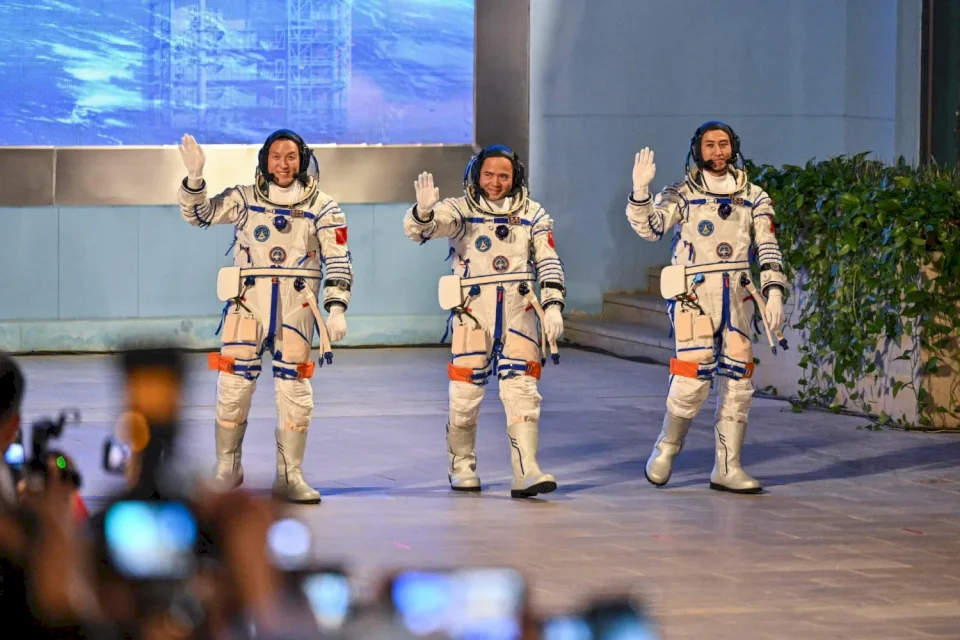
China Sends Its Youngest Astronaut in History and Mice to Tiangong Station
SadaNews - Three Chinese astronauts, including the youngest astronaut in the country's history, headed to the Tiangong space station on Friday to enhance technical expertise as China aims to send humans to the moon by 2030.
The "Long March - 2F" rocket carrying the crew of the "Shenzhou - 21" mission launched from the Jiuquan Satellite Launch Center located in a desert area, northwest of China, around 23:44 (15:44 GMT).
The three astronauts of "Shenzhou - 21" will replace the crew members of "Shenzhou - 20" who are set to return to Earth in a few days. Their mission will last six months, focusing particularly on conducting scientific experiments.
They will also carry out spacewalks and operations to install debris shields outside the Tiangong station, according to the French Press Agency.
Engineer Wu Fei, who is only 32 years old, will become the youngest Chinese to participate in a space mission. He expressed to the press on Thursday that he feels "extremely lucky" to be part of this adventure.
The crew will be led by 48-year-old Zhang Lu, who previously participated in the "Shenzhou - 15" mission. They will be supported by 39-year-old Zhang Hong Chang, who is a payload specialist.
Mice
Also joining the journey will be four mice, two males and two females, for the first Chinese experiments on rodents in orbit.
The "Shenzhou - 21" spacecraft is expected to dock with the Tiangong station three to four hours after its launch.
Before their launch, the astronauts will greet their colleagues and families in the streets of the launch center, which has been developed into a small town with restaurants, residential buildings, and schools.
China has significantly advanced its space programs over the past three decades, investing billions of dollars in the sector to reach the levels of the United States, Russia, and Europe.
The Tiangong station is a flagship project, completed in 2022 and expected to operate for at least ten years.
"Critical Tests"
After becoming a space power, China successfully sent a spacecraft (Chang'e - 4 lander) to the far side of the moon in 2019, marking a world first. It also landed a small rover on Mars in 2021.
The "Chinese Space Agency for Manned Flights" confirmed to the press on Thursday that it is "strongly committed" to sending astronauts to the moon by 2030.
It noted that a series of "critical tests" will be conducted in this regard, involving a lunar landing vehicle and a manned spacecraft.
Astronauts of the "Shenzhou-21" mission are also expected to engage in scientific activities during their stay to promote public interest in space exploration.
China has been officially excluded from the International Space Station since 2011, when the United States barred NASA from collaborating with Beijing, prompting the Asian giant to develop its own space station project.

Developments in the Health Condition of Actress Susan Badr

How Artificial Intelligence Steals Our Faces and Our Money?

Interesting Statistics Reveal the Secret of Barcelona's Offensive Strength

7 Snacks That Give You More Energy Than Coffee

"SpaceX" Seeks Approval to Launch One Million Solar-Powered Data Center Satellites

Small Habits That Indicate the Strength of Your Character

"Google" Launches AI Tool to Understand Disease-Causing Genetic Mutations

